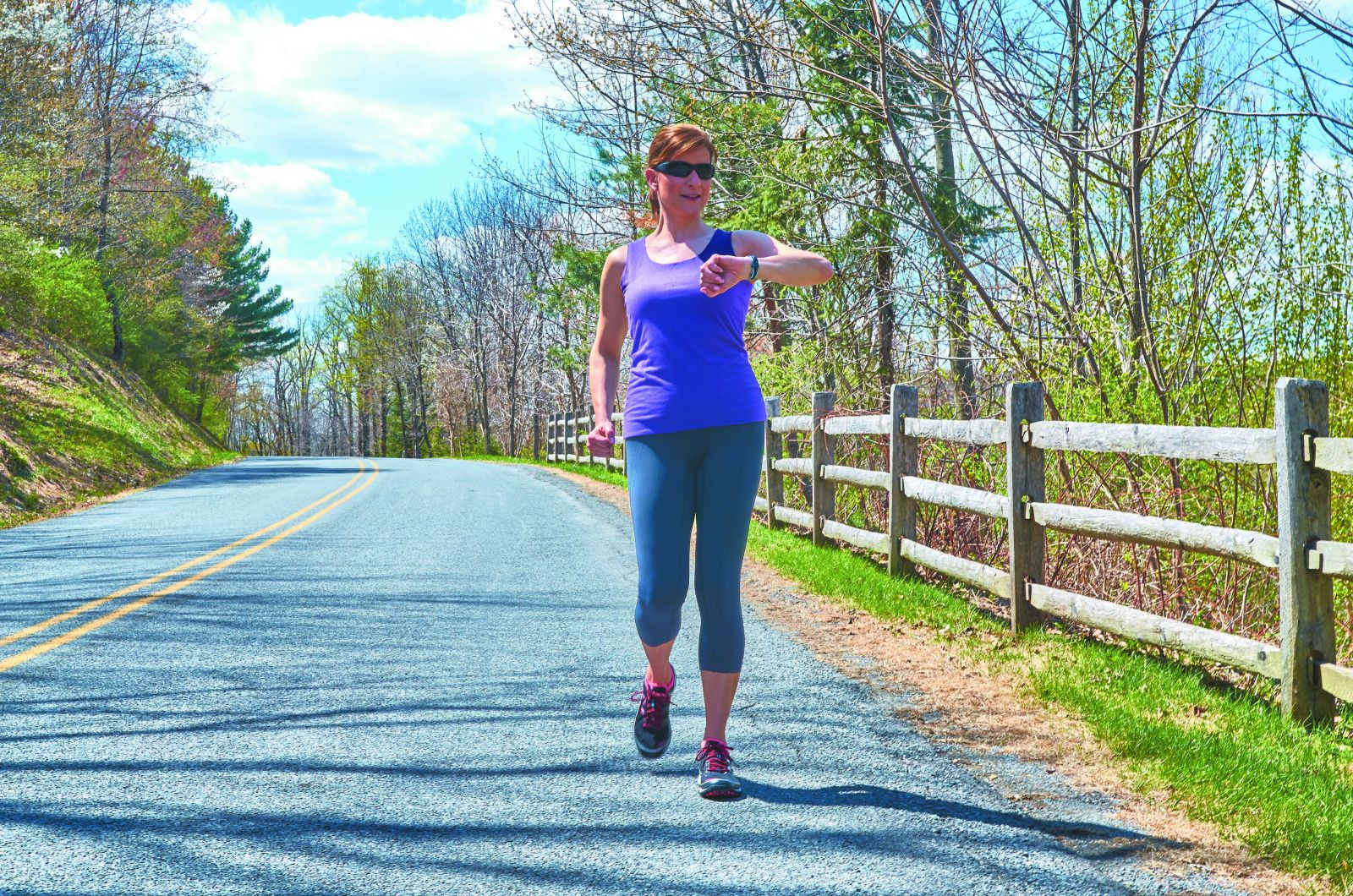
5 timeless habits for better health

What are the symptoms of prostate cancer?

Is your breakfast cereal healthy?

When pain signals an emergency: Symptoms you should never ignore

Does exercise give you energy?

Acupuncture for pain relief: How it works and what to expect

How to avoid jet lag: Tips for staying alert when you travel

Biofeedback therapy: How it works and how it can help relieve pain

Best vitamins and minerals for energy

Should you take probiotics with antibiotics?
Exercise & Fitness Archive
Articles
Exercise and better thinking skills: More evidence for a possible link
News briefs
Image: © Horsche/Thinkstock
A review of research published online April 24, 2017, by the British Journal of Sports Medicine suggests that physical exercise may help improve thinking skills in adults ages 50 or older, regardless of their mental performance when they started exercising. Researchers combed through 39 randomized controlled trials that looked at this age group. Most of the studies involved people who did aerobic exercise (the kind that gets your heart and lungs pumping, like brisk walking), resistance training (the kind that works your muscles and bones, like weight lifting), or a combination of aerobics and resistance training. A handful of the studies involved people who did yoga or tai chi. In all of the studies, participants took tests that measured various aspects of thinking skills — such as attention, working memory, and the ability to plan, organize, and manage time. All exercise types but yoga appeared to have benefits for the brain. The authors say the exercise regimen with the biggest brain boost was a combination of both aerobic and resistance-type training, of at least moderate intensity, for at least 45 minutes per session on as many days of the week as possible. The takeaway? Start exercising, and incorporate resistance training into your weekly routine.
Are there any benefits to exercising on an empty stomach?
On call
Q. I have heard that exercising on an empty stomach burns more fat and at a faster rate. Is this true?
A. When the body is in a fasting state, several backup mechanisms ensure your muscles and brain get the necessary sugar for fuel. During exercise, after your body's sugar stores are exhausted, the body then taps into stored fat and turns that into sugar or turns protein from muscle into sugar. This has led to the hypothesis that exercising when the body is already "sugar starved" will lead to more rapid fat burning.
Wrist-worn activity trackers offer inconsistent heart rate data
Research we're watching
Earlier studies have shown that wrist-worn activity trackers can accurately record the number of steps a wearer takes. However, few studies have determined how well they monitor heart rate.
Researchers at the University of Wisconsin in Madison studied four wrist-worn activity trackers — Basis Peak, Fitbit Surge, Fitbit Charge, and Mio Fuse — to determine the accuracy of their heart rate monitoring in 40 healthy women and men ages 30 to 65. The researchers fitted each participant with four trackers—two on each wrist. Using the trackers as well as an ECG machine, the researchers measured the wearers' heart rates at one-minute intervals for 10 minutes while they were sitting. They then repeated the measurements while the participants walked on a treadmill for 10 minutes. When they compared the readings from the ECGs and the trackers, they found that all of the readings were more consistent when the participants were resting than when they exercised.
Lifestyle change: “I know what to do, I just need to do it…but how?”
Despite willpower, many people find that making significant lifestyle changes is very difficult. Factors both internal and external influence our ability to make changes, but being aware of them is the first step to overcoming them.
Put some pep in your step!
Interval walking may improve endurance and help you get fit faster.
Image: © Thomas MacDonald
Warm weather is here, and you may be walking more to take advantage of being outside. Why not ramp up your routine with bursts of fast-paced walking? The technique, known as interval walking, "is a great way to get the most exercise bang for your buck," says Dr. Aaron Baggish, associate director of the Cardiovascular Performance Program at Harvard-affiliated Massachusetts General Hospital.
About interval training
Interval walking is a form of interval training, which describes any form of exercise in which you purposely speed up or slow down at regular intervals throughout the session. The benefits of interval training in athletes and people in cardiac rehabilitation are well studied. Dr. Baggish says interval walking hasn't been examined as much, but he believes the same benefits apply. "Something about strenuous exercise is good for the body. It improves endurance, reduces blood pressure, and helps with weight loss," he explains.
As physical activity level rises, blood pressure may drop
Research we're watching
The more physically active you are, the lower your risk of high blood pressure, a study in the April 2017 issue of Hypertension suggests.
Researchers pooled data from 29 studies involving a total of more than 330,000 people, about 20% of whom had high blood pressure. They examined the association between high blood pressure and leisure-time physical activity (walking, dancing, or gardening, for example) as measured by metabolic equivalents (METs).
Take a swing at racket sports
Research suggests they may serve up great health benefits.
Image: © Mike Watson Images/Thinkstock
Want to live longer? Then pick up a racket. In a study published online Nov. 28, 2016, by the British Journal of Sports Medicine, researchers examined the link between certain sports and longevity and found that racquet sports came out on top.
"In many ways, racket sports like tennis, squash, badminton, racquetball, Ping-Pong, and other variations are the ideal exercise for many older men," says Vijay A. Daryanani, a physical therapist and personal trainer with Harvard-affiliated Spaulding Outpatient Center. "Besides offering a good cardiovascular workout, they can help with both upper- and lower-body strength at one time. They can be played at any age, can be modified to fit most fitness levels, and do not involve a lot of equipment."
What does it take to be a super-ager?
Research suggests that moving out of your comfort zone is the key to staying mentally and physically young.
Finding role models who are older than we are gets more difficult as we age. But in the last few years, medical science has identified a new group we can aspire to join — the super-agers. The term refers to people in their 70s and 80s who have the mental or physical capability of their decades-younger counterparts.
What makes a cognitive super-ager?
Dr. Bradford Dickerson, a neurologist at Harvard-affiliated Massachusetts General Hospital and his colleagues have been studying super-agers for several years. Their results suggest that embracing new mental challenges may be the key to preserving both brain tissue and brain function.
Should I drop calories or boost exercise?
Ask the doctor
Image: © udra/Thinkstock
Q. To lose weight, should I focus more on my calorie count or the amount of time I spend exercising?
A. It is very, very hard to lose weight without both watching your calories and regularly exercising. But it's not that simple. For years, doctors (including me) told patients: "You've got to burn off more calories through exercise than the calories that you eat. If you do that, you'll maintain a healthy weight." We even implied that not being able to maintain a healthy weight, since it was so simple, reflected a weakness of character.
The value of prevention
Treating heart disease is expensive. Adopting heart-healthy habits can save money as well as lives.
If you exercise, eat right, and follow other heart-friendly habits, you're probably less likely to end up in the hospital with a heart problem. And — no surprise here — that translates to far lower health care costs. The average hospital charge for a heart operation or related procedure is about $85,000 (see "The price of treating heart disease").
A recent report shed light on the magnitude of the savings realized from heart disease prevention strategies. The study, published in the Feb. 1, 2017, Journal of the American Heart Association, focused on Medicare claims for more than 6,200 people over age 65. Health care costs were about $5,000 less per year in people with the most heart-healthy factors compared with those with the least number of factors. If all Medicare beneficiaries followed five of seven key heart-healthy habits (see "Life's Simple 7") to reduce cardiovascular disease, it would save more than $41 billion a year in Medicare costs, the study authors estimated.

5 timeless habits for better health

What are the symptoms of prostate cancer?

Is your breakfast cereal healthy?

When pain signals an emergency: Symptoms you should never ignore

Does exercise give you energy?

Acupuncture for pain relief: How it works and what to expect

How to avoid jet lag: Tips for staying alert when you travel

Biofeedback therapy: How it works and how it can help relieve pain

Best vitamins and minerals for energy

Should you take probiotics with antibiotics?
Free Healthbeat Signup
Get the latest in health news delivered to your inbox!
Sign Up









